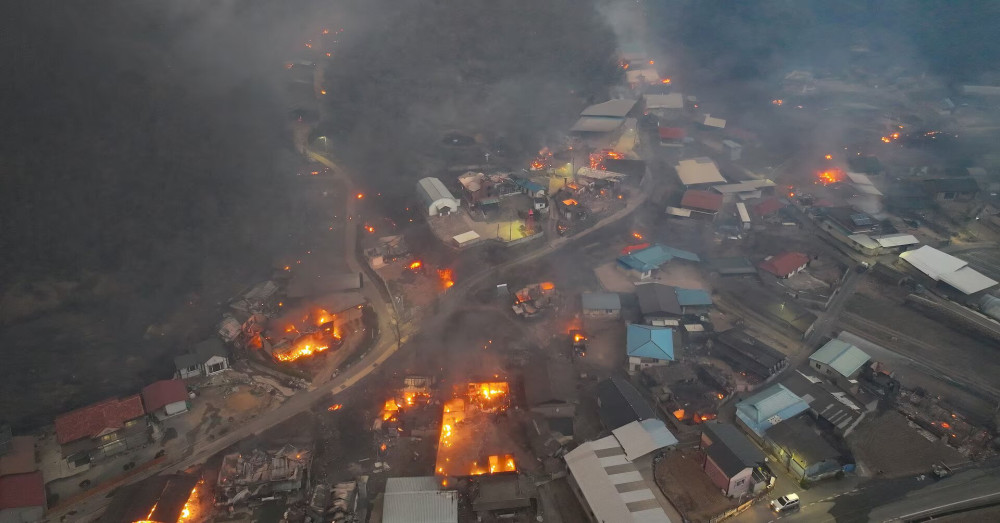Дэлхий дахинд
How DeepSeek is rewriting AI’s future
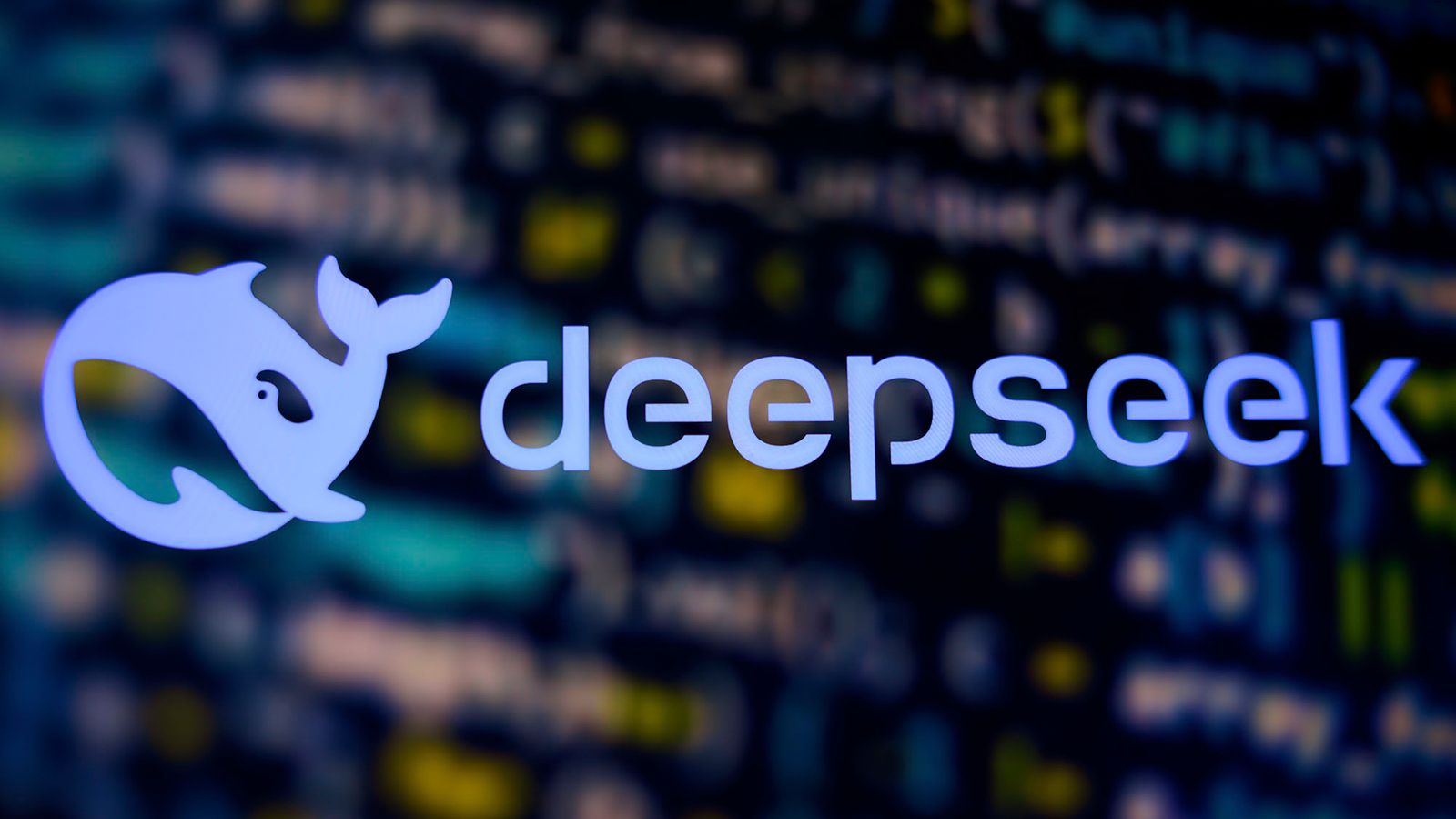
Editor’s note: Yi Xin is a Beijing-based international affairs commentator. The article reflects the author’s opinions and not necessarily the views of CGTN.
Just weeks ago, OpenAI, the golden child of Silicon Valley, found itself facing an unexpected challenger: DeepSeek, a cost-effective Chinese AI model that emerged quietly yet managed to rival OpenAI’s capabilities. Its arrival marks a significant shift in the global AI landscape, signaling the dawn of an inclusive AI era on the horizon.
The myth of AI exceptionalism
When OpenAI was launched in 2015, its mission was clear: to harness technologies as public goods for all people. With its cutting-edge technology and forward-looking vision, OpenAI quickly became a magnet for capital. Wall Street investors scrambled to invest, fearing they might miss the golden ticket to success in the coming AI era. Yet as Wall Street billions flooded in, priorities shifted. “We became prisoners of our own hype,” admitted a former OpenAI engineer.
The industry had long accepted a rigid creed: Groundbreaking AI requires three essential inputs – elite PhDs, proprietary data fortresses and near-infinite funding. The message was clear: Innovation without endless resources wasn’t just difficult, but impossible – a convenient dogma that ensured Silicon Valley’s superiority while the rest of the world scrambles to catch up, if not give up entirely.
This remained the case until January 2025, when an unheralded challenger from Hangzhou, an innovation hub in China, flipped the script. Against all odds, DeepSeek built models that match – and, in some cases surpassed – the capabilities of its Western counterparts at a fraction of the cost. Overnight, the assumption that AI breakthroughs depended on Silicon Valley-scale resources crumbled.
A new playbook
DeepSeek’s breakthrough has not only exposed the fragility of the AI exceptionalism myth but also rewritten the rules of the game. It has shown that innovation is not solely the domain of billion-dollar corporations with deep pockets. Instead, it can flourish in environments where entrepreneurship and creativity take precedence.
Beyond its technical achievements, DeepSeek’s open-source strategy has been a game-changer. By releasing its model parameters and training tools, it has democratized AI development, making it accessible to developers worldwide. This has not only attracted a global community of innovators but has also spurred a wave of creativity and collaboration. The open-source model has become a catalyst for progress, driving the development of new applications and pushing the boundaries of what AI can achieve.
The impact of DeepSeek’s approach has been profound. It has challenged the traditional notion that closed-source systems are the only way to maintain a competitive edge. In fact, it has shown that openness can be a strength, fostering a culture of sharing and collaboration that benefits the entire AI community. As more developers join the open-source movement, the pace of innovation will likely accelerate, leading to even more groundbreaking advancements in the field.
“In the face of a disruptive technology, closed-source moats are sandcastles against the tide,” says Liang Wenfeng, the founder of DeepSeek. “Even if OpenAI remains closed, it can’t prevent being overtaken. True defense isn’t hiding code – it’s cultivating teams where every failure breeds institutional wisdom. That’s how you build an unshakable advantage.”
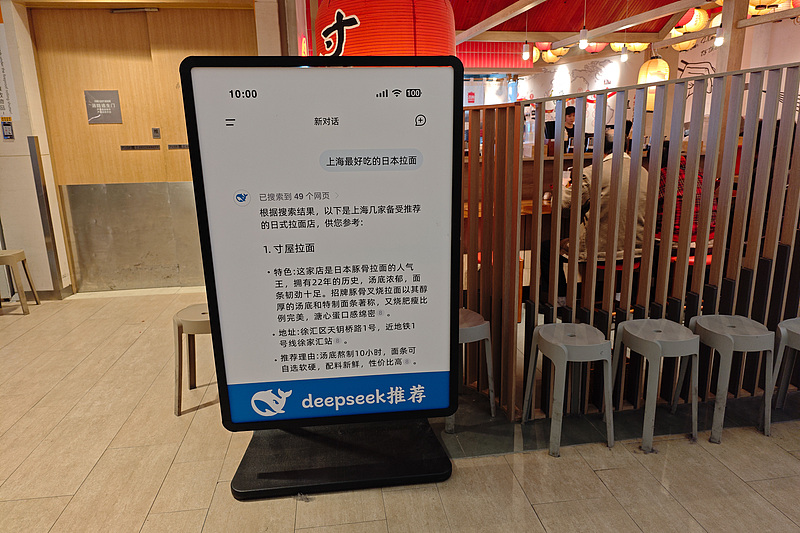
DeepSeek recommends restaurants in a mall, Shanghai, China, February 26, 2025. /CFP
An open and collaborative AI future
DeepSeek’s success has demonstrated that the future of AI is not about hoarding resources and knowledge but about creating an ecosystem where everyone can contribute and benefit. By embracing openness and collaboration, DeepSeek has brought new thinking for the industry, one that prioritizes innovation, inclusiveness, and the collective advancement of AI technology.
At the Paris AI Action Summit, DeepSeek emerged as a key player. European countries commended DeepSeek, alongside other Chinese firms, for empowering European SMEs and developers who had previously been excluded by the high costs and tech barriers of AI. Clément Delangue, the co-founder of Hugging Face, stated at the summit that, DeepSeek demonstrated that every country could be a part of the AI world, and now the whole world is rushing to catch up.
David Gosset, founder of the China-Europe-America Global Initiative, also wrote in China Daily saying: “Beyond its technological significance, DeepSeek offers a broader geopolitical lesson… Rather than adopting a defensive posture, Western countries should recognize the necessity of competitive engagement with China through internal innovation while also seeking avenues for cooperation.”
With hundreds of thousands of developers using its tools, DeepSeek is breaking down the “black box” of AI development, fostering equity and collaboration. Its open-source model is the first step toward an inclusive AI ecosystem, driving knowledge sharing, innovation, and faster adoption of technological breakthroughs.
DeepSeek’s journey is more than just a technological leap; it is a clarion call for a new era of AI development – one that is defined by openness, collaboration and inclusiveness. As the world watches, DeepSeek is not just rewriting AI’s future, it is inviting everyone to be a part of it.
(If you want to contribute and have specific expertise, please contact us at opinions@cgtn.com. Follow @thouse_opinions on Twitter to discover the latest commentaries in the CGTN Opinion Section.)

Дэлхий дахинд
Ромын пап Францисыг оршуулах ёслол бямба гарагт болно
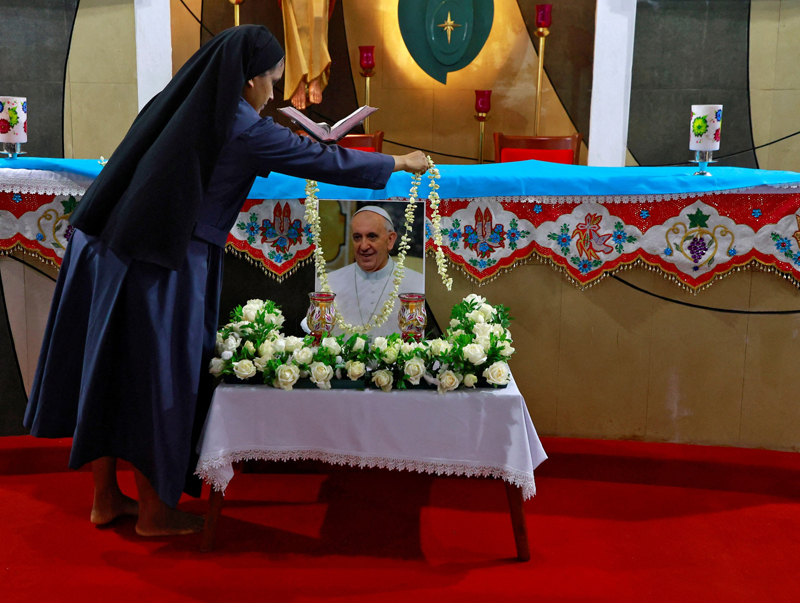
Ромын католик сүм хийдийн кардиналууд өчигдөр хуралдаж, пап Францисын оршуулах ёслолыг энэ бямба гарагт Гэгээн Петрийн талбайд гадаа үйлдэхээр тогтжээ. Харин ард иргэд, сүсэгтнүүдийг Ромын Папд хүндэтгэлээ илэрхийлэх боломжийг олгох үүднээс лхагва гарагт шарилыг нь Гэгээн Петрийн сүмд байрлуулж юм байна.
88 настай Пап лам Францис тархинд нь цус харвасны улмаас зүрхний дутагдалд орж нас нөгчсөн болохыг Ватиканы албаныхан үүний өмнө мэдээлсэн. Он гарснаас хойш хоёр уушгиндаа хатгалгаа туссаны улмаас эмчлүүлж эмнэлгээс гараад удаагүй байсан Ромын пап хамгийн сүүлд өнгөрсөн амралтын өдөр Улаан өндөгний баярыг тохиолдуулж Гэгээн Петрийн талбайд сүсэгтэн олонтой мэндчилж байсан юм. Францис ламтан мөн тогтсон заншлаас гажиж, Гэгээн Петрийн сүмд бус, Гэгээн Мариагийн сүмд өөрийг нь оршуулахыг гэрээсэлжээ. Өмнөх бүх Ромын папуудаас анх удаа Европын бус орны гаралтай Францис ламтны дурсгалыг хүндэтгэж төрөлх Аргентин улсад нь болон хөрш Бразил улсад 7 хоногийн гашуудал зарласан байна.Мөн дэлхийн католик шашинтнуудын тэргүүнийг оршуулах ёслолд оролцож, Пап Францистай салах ёс гүйцэтгэх бодолтой байгаагаа дэлхийн олон орны удирдагчид илэрхийлж байгаа юм байна.
АНУ-ын Ерөнхийлөгч Д.Трамп тухайлбал гэргийн хамтаар Ром хотноо энэ ёслолд оролцохоо мэдэгдсэнээр албандаа орсноосоо хойш анх удаа хилийн дээс алхах гэж байгааг хэвлэлүүд дурьдаж байна. Францын Ерөнхийлөгч Э.Макрон, Бразилийн ерөнхийлөгч Лула да Сильва, Пап ламтны төрөлх Аргентин улсын ерөнхийлөгч Хавьер Милей нар мөн оршуулгад оролцохоо мэдэгджээ. Украины ерөнхийлөгч Зеленский очихоор төлөвлөж байгаа талаар дотоодын хэвлэлүүд нь мэдээлжээ.
Дэлхийн 1,4 тэрбум католик шашинтнуудын тэргүүн, дараагийн Пап ламыг сонгох сонгуулийн тухайд, түүнийг таалал төгссөнөөс 15-20 хоногийн дараа эхэлдэг жаягтай. Энэ үүднээсээ тавдугаар сарын 6-наас хойш болох юм байна. Маш чанд хатуу дэг ёсны дагуу, нууц байдалд явагддаг энэ сонгуульд дэлхийн өнцөг булан бүрийн 135 кардинал оролцох эрхтэй байна.
Дэлхий дахинд
The U.S. tariff tantrum: A self-defeating trade war
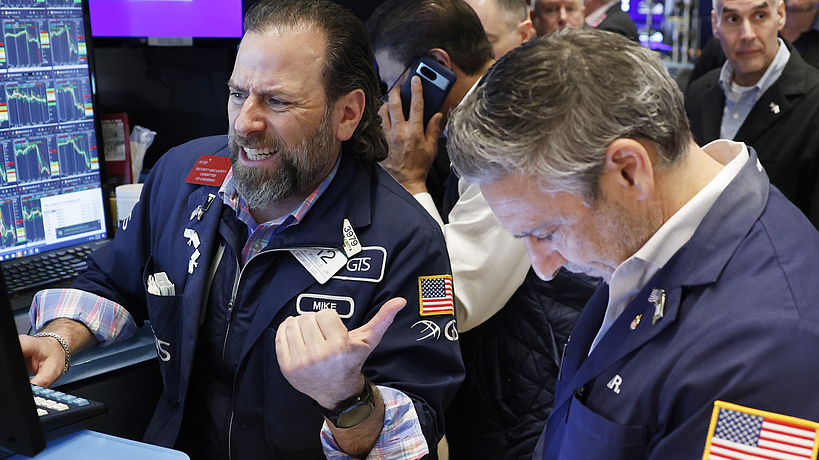
Editor’s note: Xin Ping is a commentator on international affairs, writing regularly for Xinhua News Agency, CGTN, Global Times, China Daily, etc. The article reflects the author’s views and not necessarily those of CGTN.
Washington’s latest tariff blitzkrieg – slapping “universal” levies on over 180 nations and regions – is setting things on fire at home.
The moment the executive order was signed, U.S. markets went into freefall: the Dow plunged nearly 4 percent, Apple and Nike stocks nosedived, and $6.4 trillion vanished from Wall Street in two days.
This isn’t economic policy. It’s economic arson.
The art of self-sabotage
Will tariffs bring manufacturing home? Despite years of arm-twisting, American tech giant Apple still works with 94.5 percent of its suppliers being overseas.
Apple isn’t an outlier. The semiconductor industry is facing obstacles in reshoring back to the U.S. as well. Intel has paused its Arizona factory. TSMC is delaying U.S. production. The problems hindering “made in America” are systemic and may only be addressed through a broad and profound economic restructuring. Tariffs won’t magically resurrect dead industries; they only inflate prices for already-struggling consumers.
The U.S. tariff spree, unleashed in the name of “America First,” is in fact a masterclass in shooting oneself in the foot. U.S. farmers will be hard hit. In the aftermath of the 2018 China tariff, while U.S. soybean exports eventually rebounded, the farming community suffered irreparable damages: Midwest farm bankruptcies spiked 30 percent, wiping out generations of family farms. Today’s “Tariff 2.0” risks repeating history – but with higher stakes.
China’s counterpunch
Beijing has been defending itself with precise actions, hitting back with matching levies. But its market remains open to others. Germany’s automakers, for instance, now sell more cars in China than at home. ASEAN’s durians and lobsters enter Chinese markets tariff-free under RCEP – a stark contrast to America’s “walled garden” approach.
As China’s commerce ministry stated: “Bullying tactics won’t work. We defend rules, not whims.” Similar tactics have failed before. When the U.S. tried weaponizing small-parcel exemptions to target Chinese goods, U.S. retailers revolted, as 60 percent of affected imports are everyday essentials for low-income households.
Allies: from partners to prey
American allies are not spared either, and their response has also been strong. The EU is poised to approve retaliatory measures. France is warning against “suicidal trade wars.” German industries are lobbying Brussels to hit back harder. Japan is calling the moves “deeply regrettable.”
In Southeast Asia, the irony is thicker than durian pulp as countries like Vietnam face 46 percent tariffs but remain trapped supplying components to U.S. tech giants. An economist in Hanoi reveals the reality: “Trump wants us to be his factory, but not his competitor. That math doesn’t add up.”
The U.S. tariff crusade isn’t just failing – it’s uniting the Global South against Washington. The U.S. only accounts for around 15 percent of global trade. The remaining 85 percent is made up by the rest of the world – including China – and it will not stand idly by and watch the international trade system, the very thing that fostered global prosperity for decades, destroyed by self-serving political motivations.
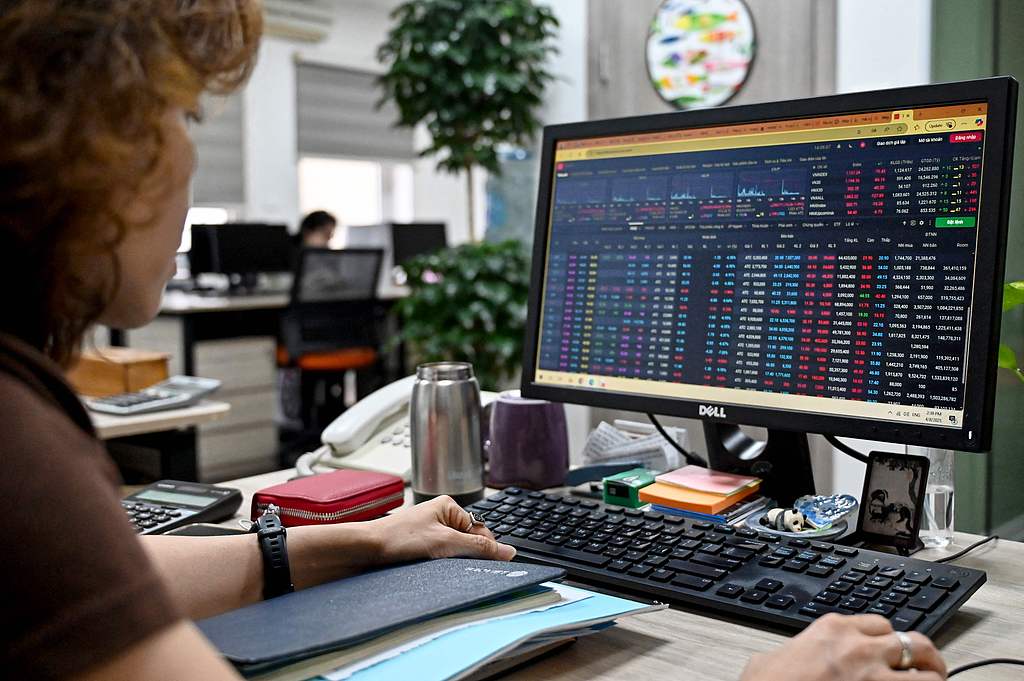
A woman looks at an electronic stockboard on her computer at a trading company in Hanoi, Vietnam on April 8, 2025. /CFP
The ghost of Smoot-Hawley
History has long given its verdict on tariffs. The 1930 Smoot-Hawley tariffs turned a recession into the Great Depression. The déjà vu is uncanny: U.S. steel tariffs briefly boosted producers but killed 75,000 downstream jobs. American icon motorcycle manufacturer Harley-Davidson was forced to shift production overseas to avoid costs. “Made in America” has become “priced out of America.”
Those in Washington are preaching “short-term pain for long-term gain.” Tell that to the 27 U.S. textile mills shut down in the past 20 months, or the single mom paying 17 percent more for Walmart clothes. Some on Reddit have put it quite well: “Tariffs are taxes on the poor.”
Epilogue: The unlearned lesson
The White House insists this is “historic” – and they’re right. Not since the 1930s has the U.S. so recklessly weaponized trade. But the world has changed: China is deeply integrated into global supply chains, the EU makes its own decisions, and ASEAN won’t ditch prosperity for geopolitics.
The clock is ticking. Every tariff tweet coming from Washington is shredding U.S. credibility. Every market plunge erodes the White House’s “strong economy” narrative. And America’s isolation deepens with every trade deal other countries make on lowered tariffs, such as those between China and ASEAN and European countries.
In the end, it’s not just about the economy. America is turning its back on the world. The path it has chosen is a solitary one.
(If you want to contribute and have specific expertise, please contact us at opinions@cgtn.com. Follow @thouse_opinions on X, formerly Twitter, to discover the latest commentaries in the CGTN Opinion Section.)
Дэлхий дахинд
БНСУ даяар галын нөхцөл байдал ноцтой түвшинд хүрснийг зарлалаа
